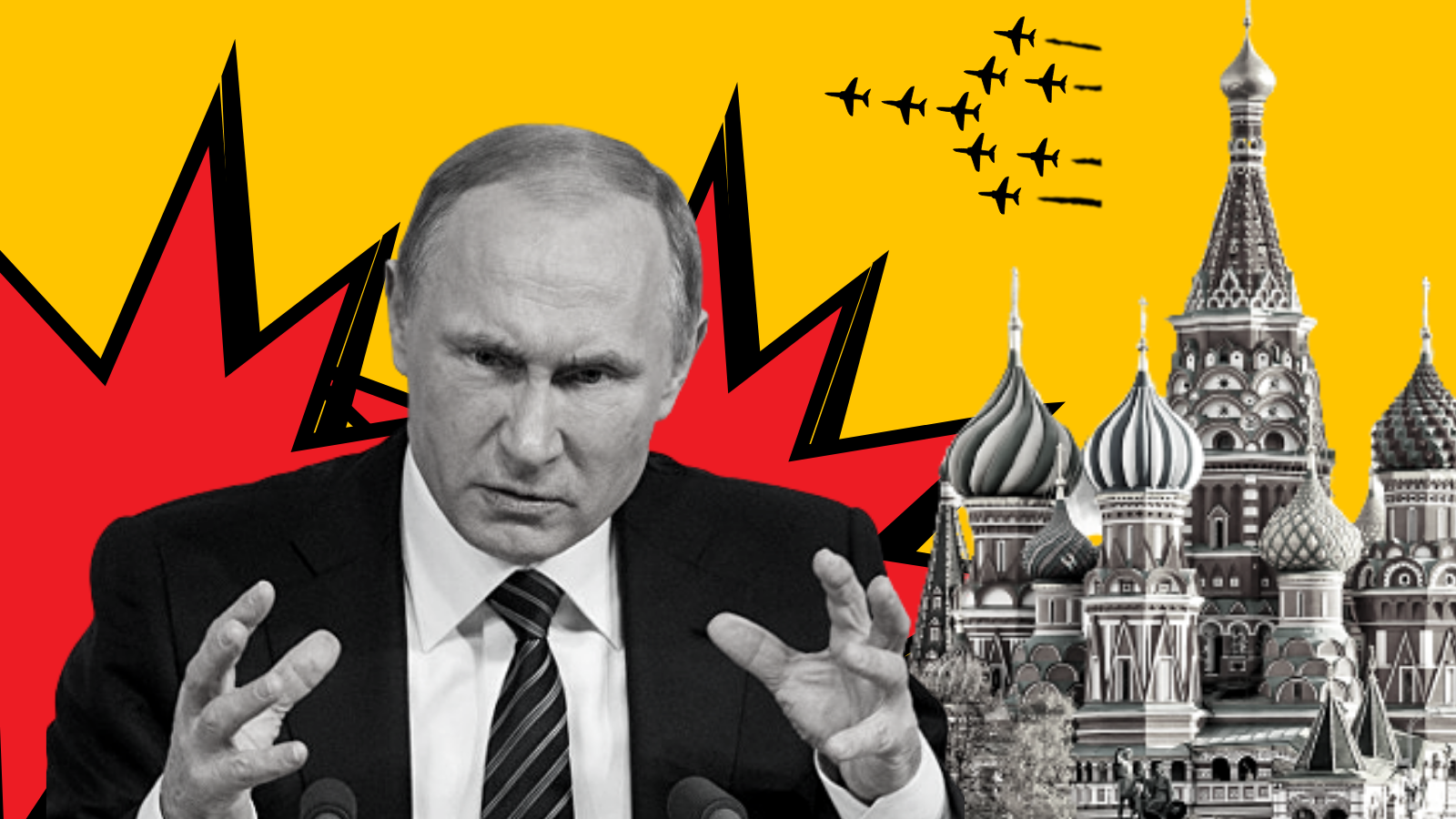
Ukraine's and Russia's key national narratives of history were developed in the 19th century. This century also gave them their cultural pantheons: writers, painters, composers, and historians.
But there is one more thing about the 19th century: it was obsessed with the idea of suffering. Many great writers of this century, from Balzac to Shevchenko to Dostoievsky, focused on asking a key question: "how to suffer rightly." How can suffering lead to a better life?
This mode of thinking remained into the early 20th century, but was profoundly distorted in its authoritarian / totalitarian decades.
Instead of asking how suffering can lead to a better life, totalitarianisms asked a different question: who must suffer so that a better life could come. In other words: who should be sacrificed to have this better life?
Nazis said they needed to kill all the Jews. Bolsheviks said they needed to exterminate the bourgeoisie and peasants as a class. Despite the stark ideological differences between Nazism and Stalinism, they both shared a logic of collective sacrifice of others.
After World War II, the liberal world tried to think differently. It put much more emphasis on happiness, rather than on suffering. "Righteous" suffering ceded its place to happiness and pleasure as key values. Modernization became a hedonistic concept. Consumerism promised pleasure for all.
Here is the key difference: the post-war Soviet Union didn't go on this path. It continued to think that progress meant suffering for a better life. It continued to describe modernization not in hedonistic but in ascetic terms. Or sadistic ones.
Seeking pleasure was heretical to Soviet doctrine. All pleasure was to be found in the future. Or in the mirror of this future: socialist-realist art.
The post-war world showed that Soviets failed in their understanding of history. Soviet Union collapsed precisely because it failed to be hedonistic. Soviets failed to see that communist manifesto ceded its place to a consumerist manifesto.
But when pleasure is ostracized, it mutates into perverted forms.
In the Soviet Union, the key perverted pleasure was power and force. Power as a right to humiliate. If you can't enjoy life, you should at least suffer less than others. Or make others suffer more than you.
"He beats me, therefore he loves me," is a strange Russian proverb which encapsulates this rule. When mutual pleasure (love) is impossible, the only proof of connection is a vertical relation of the dominant and dominated. A political sado-masochism.
This might explain why Russian post-Soviet elites are unable to see the world in terms of partnerships, i.e. horizontal connections. Why they are unable to perceive Ukraine as a sovereign state with which they can have horizontal relations.
For Russians, Ukraine can only exist as a subjugated entity, under somebody's ownership: either Russian or American. Even Europe can only exist in this form, by the way.
Kremlin thinks of smaller states as someone's property. It identifies power with property: vlast, power, is something giving you a right to vladet', own.
This can explain why the key message of Russian propaganda about Ukraine is the message of "external governance." By this, they mean that if Ukraine is not ruled by Russians, it must be ruled by someone else. The idea that Ukraine could be a democracy and thus ruled by its own people, politicians, businessmen, oligarchs or whoever else inside Ukraine, is unthinkable for the Kremlin. Russians don't perceive the world as a multitude of sovereign states making their own decisions.
Similarly, relations with America can only be those of confrontation: "eat or be eaten." America won the Cold War, but Russia needs to win the next one, they say. Some pro-Kremlin analysts are talking about the societies which Russia has defeated (the Swedes in the 18th century, the French in the 19th century, the Germans in the 20th century) as now "vegetarian." And they mean this with full contempt.
But what these Russians call "vegetarian," only means that these societies have become less willing to harm others. They have learned (and are still learning) to live in a horizontal world. In a world where power and coercion is not the only solution. Where cooperation, dialogue and mutual help are believed to be much better forms of interaction.
Ignoring the benefits of cooperation and seeing the world exclusively as a battle between big geopolitical animals (I once called it "zoopolitics") is a Russian psychological problem. Or perhaps a psycho-political problem. It's not only about Putin: surveys find that only 3-4% of Russian citizens think that Moscow bears any responsibility for the current escalation around Ukraine. This means that Putinism in Russia is not an exception; it is a rule.
Unable to enjoy, this ideology proclaims the suffering of others as the only attainable joy. What Russians mean when they use the word nagnut'.
You can call it political sadism. Or "sado-Putinism". This is a political ideology which seeks its highest pleasure in making others suffer.
But it is all rooted in the incapacity to enjoy horizontal relations between humans. In the obsession with describing the world only in the power relations, in the relations between the dominated and the dominants.
The key question is: will Russians change? Will they one day accept that the logic of horizontal and mutually beneficial relations is better? Or, on the contrary, will they export their zoopolitical logic to the rest of the world?
If the latter is true, the danger is global.
